
Many people consider yoga one of the best forms of exercise for seniors. In fact, with the help of a trained yoga instructor, seniors can increase their flexibility, power, and strength and boost their mood. In essence, a yoga retreat focuses on the practice of yoga. Retreats can be solitary and local, but they often involve travelling to a location that offers group yoga activities. A retreat allows yoga practitioners to deepen their practice without everyday life interruptions, stress and tension.
Given these points, when executed thoughtfully, the retreat experience is entirely different from the typical travel or vacation experience. For instance, retreats allow you to hear yourself more clearly, honour yourself like never before, and concentrate on yourself. Besides, you can also gain new perspectives on life from people you wouldn’t otherwise have met.
Yoga Retreats in Canada
Yoga for seniors is one of the most significant ways to ensure their physical and mental wellbeing. Everyone can benefit from a yoga retreat by genuinely relaxing and taking time for themselves, and not to mention yoga helps seniors lose weight.
Canada is the perfect place to experience yoga retreats because it has beautiful scenery, stunning landscapes and an abundance of talented teachers, mentors and warm souls who will help you unwind, heal and be at peace by practicing yoga. Here is the list of the top ten unique yoga retreats in Canada for you to visit and enjoy:
1. REO Rafting & Yoga Resort
In British Columbia, you will surely find true Canadian wilderness. Along the jade-green Nahatlatch River, REO is uniquely surrounded by canyons, forests, and mountains.
In addition, the surrounding area offers stunning scenery, whitewater rafting, kayaking, hiking, and yoga during the summer. For this reason, visit the Nahatlatch Valley for a rejuvenating retreat.
With views of the forest, river, and mountains, you will feel relaxed and refreshed during your stay. It is even possible to skip the trip and choose a massage if you feel like relaxing a bit more once you get to the retreat.
Address: 61755 Nahatlatch Forest Service Rd, Boston Bar, BC V0K 1C0
Phone number: +18007367238
Location: Boston Bar, British Columbia
For booking visit: reorafting
2. Grail Springs Wellness Retreat
In case you are searching for a peaceful place to let your body, mind, and soul rest, then the Grail Springs Wellness Retreat is ideal. Overall, there is unwavering devotion to personal growth and planetary transformation for people, animals, and the planet at the heart of Grail Springs Retreat Centre for Wellbeing. In fact,
Ultimately, by implementing an integrative holistic approach, they assist you in de-stressing and nourishing the body. Therefore you will be relaxed the mind and reconnect with yourself in a place of healing in nature.
In short, you will be inspired by the natural beauty and reenergized by the healing environment of pristine forests, walking trails, crystal outcroppings, wildlife, labyrinth, and alkaline lakes.
Address: 2004 Bay Lake Rd, Bancroft, ON K0L 1C0, CANADA
Phone number: +16133320154
Location: Bancroft, Ontario
For booking visit: grailsprings.com
3. Yasodhara Ashram
This is a beautiful British Columbia yoga retreat and study center known as Yasodhara Ashram. In addition to yoga tools and experiential learning, they offer support for personal self-development. Above all, their focus is to provide a much-needed emphasis on the Divine Feminine and Light in this world.
Address: 527 Walker’s Landing Road Box 9 Kootenay Bay, B.C. V0B 1X0 Canada
Phone number: 2502279224
Location: Kootenay Bay, British Columbia
For booking visit: yasodhara
4. Paradise Found
There is no place like Paradise Found on Salt Spring Island. The location makes it ideal for wellness retreats. Kundalini yoga may seem intense to some, but it’s incredibly beneficial to combine breath and movement in this way. In addition, Kundalini yoga retreats are scheduled, private, and completely customizable. The retreats not only include daily yoga classes and meditation, but they can also feature Reiki energy healing, truffle making, and massages. With this in mind, you can go on a short weekend getaway or stay for several days to experience silence or detox.
Address: Cusheon Lake Salt Spring Island, British Columbia
Phone number: 8889899642
Location: Salt Spring Island, British Columbia
For booking visit: paradisefound
5. Mountain Trek Fitness Retreat and Health Spa
Among the health retreats in Canada, Mountain Trek is the most acclaimed. In fact, their daily hikes through British Columbia’s stunning mountains, chef-prepared, nutritionist-designed spa cuisine, and sunrise yoga are hard to ignore.
For this reason, they will take your physical, mental, and emotional health to a whole new level. In short, the program will help you rediscover your energy and creativity, reduce stress, improve sleep, eliminate toxins, and lose weight. As a result, your mind and body will be completely refreshed and reenergized by returning home.
Address: 3800 North Street Ainsworth Hot Springs, BC V0G 1A0 Canada
Phone number: 18006615161
Location: Ainsworth, British Columbia
For booking visit: mountaintrek
6. Sivananda Ashram Yoga Camp
SivanandaYoga Vedanta Centre is, in short, an international nonprofit organization. So they are dedicated to teaching classical hatha yoga and Vedanta (philosophy yoga) to attain physical, mental, and spiritual wellbeing and a means for self-realization. Besides retreats, the center is also a study center where mentors and teachers live, and students are encouraged to explore themselves through spiritual experiences.
Address: 673 8e Av Val-Morin, Quebec, Canada J0T 2R0
Phone number: +18193223226
Location: Laurentian Mountains, Quebec
For booking visit: sivanandacanada
Alberta
All in all, the best part of retreats is the opportunity to mentally, emotionally, and physically withdraw from the stress of everyday life. Yoga retreats are ultimately a chance to unplug from the noise, information overload, unrealistic demands, and the perpetual busyness of modern living.
For the most part, the scenery in Alberta is one of the best in the country. Furthermore, it is also home to two of the oldest national parks globally. This Canadian province has a vast desert badland, lush mountains, and stunning prairies. There is no place like the Canadian Rockies for relaxing, unwinding and cultivating your spirituality after all. Enjoy being surrounded by some of nature’s finest during a yoga vacation.
7. Lake Louise Wellness
You can feel the spirit of this wild place from the moment you step onto the lakeshore since the picturesque Lake Louise lies in the heart of Banff National Park. After all, this place is celebrated worldwide for its poignant beauty. In addition, the natural world offers more than just jaw-dropping majesty; since there’s a profound connection to nature that is both personal and authentic.
In conclusion, they offer yoga and meditation retreats, breath work, workshops, and mindfulness retreats offered at Lake Louise Wellness.
Address: 111 Lake Louise Drive, Lake Louise, Alberta, Canada, T0L 1E0
Phone number: 14035223511
Location: Banff National Park, Alberta
For booking visit: fairmont
8. Zen Wellness Centre
Zen Wellness Centre is a luxurious Canadian yoga retreat, perfect for letting go of everything that doesn’t serve you. Therefore, you will receive daily Hatha-based yoga classes in the mornings and meditation classes in the evenings.
In addition, there are wellness workshops, private coaching, and therapy sessions for depression and anxiety release. They also offer a minimum 3-night retreat and 30 days programs. In addition to providing one-on-one retreats, they also offer group retreats and corporate retreats.
Address: 104 White Ave BraggCreek AB, Canada
Phone number: 4037170551
Location: Bragg Creek, Alberta
For booking visit: zwretreat
9. Sanctum Retreat
Sanctum was founded in 2004 and offered a unique, spacious and straightforward elegance service. Meanwhile, the community sits on a pristine 100-acre parcel of woodlands and open fields with a spring-fed river. In a word, this place is a home away from home for many. So people usually spend their time together each year to reconnect, share their unique stories, and dream about their futures.
Among the groups that Sanctuary serves are faith communities, public service groups, and those who serve the common good. In short, Their programs support spiritual growth and educational programs and retreats, accommodating both private and public sectors and charitable organizations.
Address: 11 Sanctum Way Caroline, Alberta T0M0M0
Phone number: 18884420285
Location: Caroline, Alberta
For booking visit: sanctumretreat
10. Evolve Retreat Co
Health and wellness tour operator Evolve Retreat Co. is superb retreat based in Alberta. For instance, they offer workshops, health seminars, and multi-day retreats. They also combine evidence-based wellness coaching, nutrition, fitness, and outdoor activities. They also provide guests with the tools, inspiration, knowledge and support to “Experience Wellness” and incorporate it into their everyday lives.
In essence, the wellness program combines four elements – mindset, movement, nutrition, and sleep to maximize your health.
Address: 43 Dieppe Drive SW Calgary, Alberta T3E 7A6 Canada
Phone number: +18555055951
Location: Calgary, Alberta
For booking visit: evolveretreatco
How Much Does the Average Yoga Retreat Cost?
Generally speaking, depending on the extent of your stay, season and services, prices can be different. Then for 3 to 5 days, you can expect something between CAD 1300 and CAD 3500. There are also private retreats available for about CAD 4200 for one week.
Final Words
Yoga for seniors is one of the best ways to improve physical and mental health. Furthermore, a yoga retreat will offer the most memorable yoga experience for those looking to try it out for the very first time. Additionally, retreats can teach us about the philosophy of yoga, which is more than poses.
In short, a retreat gives you more time to listen to yourself and the opportunity to honour yourself. So, take advantage of your retirement days to ease your mind of stress and distractions. Moreover, yoga retreats are an excellent opportunity to connect with others who share your passion for yoga and wellness. You can build friendships and a sense of community to support your yoga practice long after the retreat.














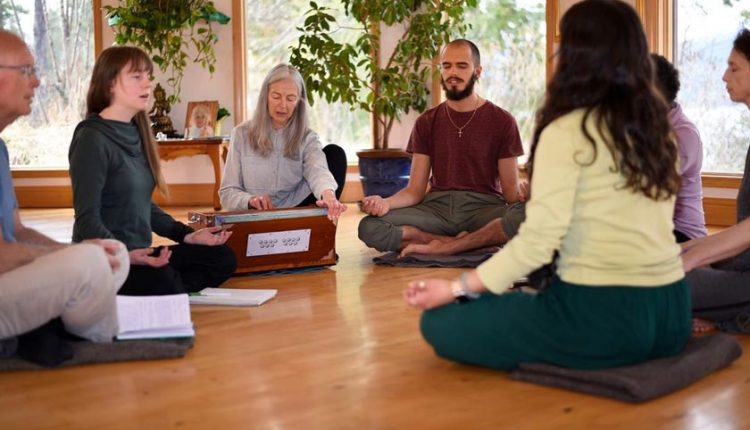



















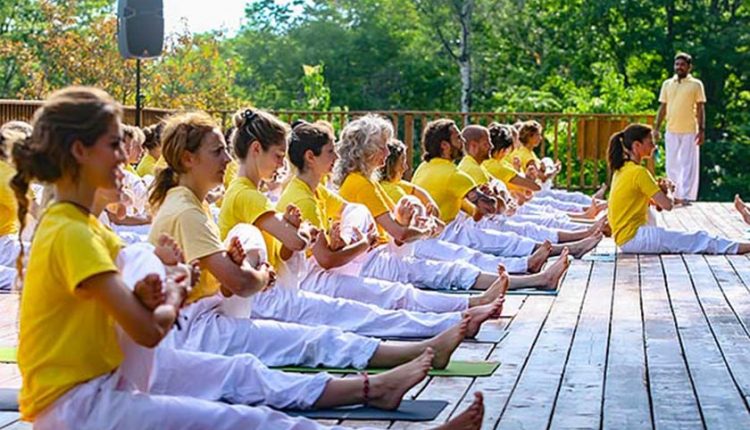
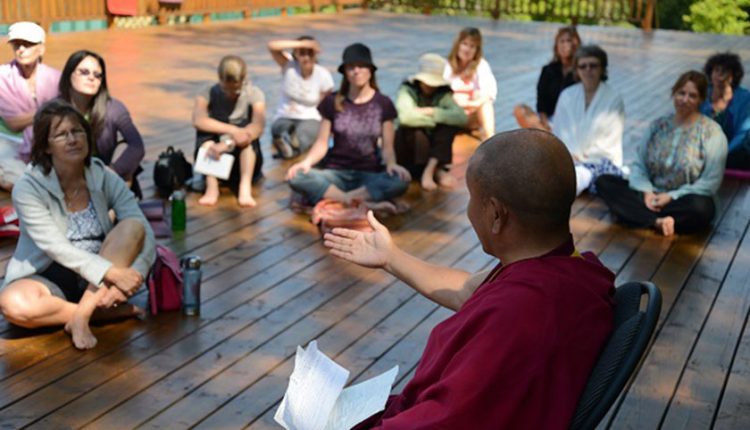
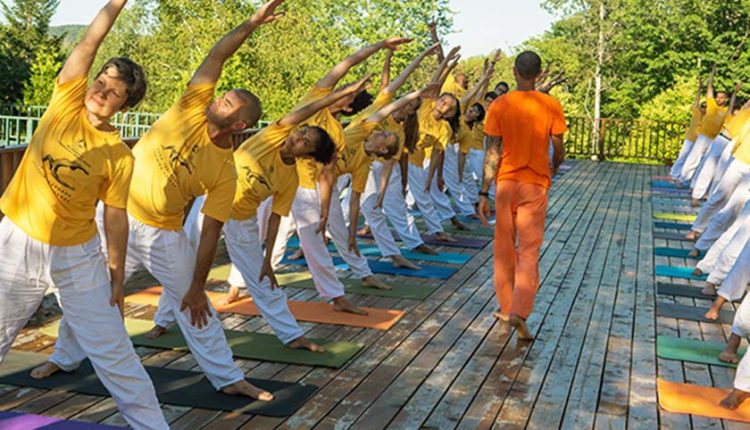
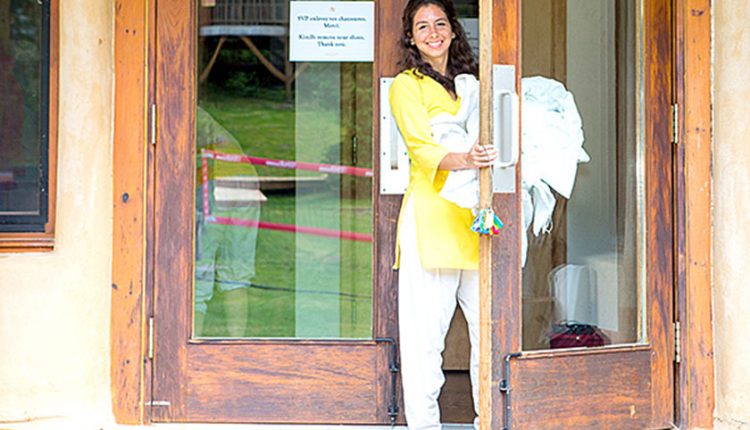
































I spent two weeks at Mountain Trek Fitness Retreat. It was the best time of my life; we went there for our 30th anniversary. The nights are peaceful and calm, and the mornings are just heavenly. The staff are also gentle and loving.
Are these retreats still active with the Coronavirus still presenting active cases? And if yes, how can we ensure that it is safe to participate in their activities?
I’ve been to Sanctum Retreat, and it’s not that good; although I went there about eight years ago, I wouldn’t recommend it. Zen Wellness, on the other hand, is worth the reputation.
I used to go to the Lake Louise Wellness, and it was really great.
I live in British Colombia and enjoyed these yoga retreats introduced in this article. It seems I have several options to choose from.
I’ve never gone to a yoga retreat. In fact, I’ve started doing yoga only recently. Can you still take part in the events if you are a beginner? Are there different programs for different levels?
Such a great article. I interested in yoga since pandemics has begun and I practice every day at home. I’ve had a real inclination towards doing yoga in groups, and now, thanks to vaccination and opening gyms, I have a chance to go to yoga retreats. This article helped me get familiar with yoga retreats located in British Colombia.